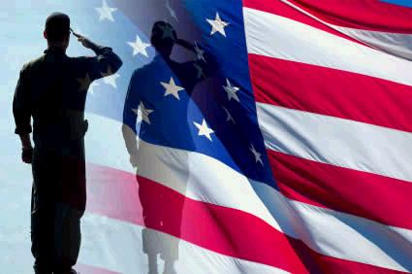
HISTORY OF THE REPUBLICAN PARTY
The Republican Party was born in the early 1850’s by anti-slavery activists and individuals who believed government should grant western lands to settlers free of charge. On February 28, 1854, Major Alvan E. Bovay called a meeting in the Congregational Church in Ripon, Wisconsin, a small town northwest of Milwaukee. The men who met that night in the small farming community were called together in the common belief that slavery was unconstitutional.
In Congress, debate raged over the Kansas-Nebraska bill. Its passage would leave the legal question of slavery to the residents of the Kansas and Nebraska territories and upset a ban on slavery in those areas imposed by the Missouri Compromise of 1820. Out of the meeting in Ripon came a resolution: A new party, to be named the Republican Party, would be formed if the Kansas-Nebraska bill passed. They decided to call themselves Republicans because they professed to be political descendants of Thomas Jefferson’s Democratic-Republiican party. The bill passed in the Senate on March 4 but did not become law until May 30 after the House finally passed it.
Following Senate passage, on March 20, fifty-three local citizens gathered in the schoolhouse in Ripon. From that group they appointed a committee of five to form the new party. The first official Republican meeting took place on July 6, 1854, in Jackson, Michigan. The crowd was so great that it could not be held in the town’s largest facility. Business had to be conducted outside, in a grove of trees, near the county racetrack. The name “Republican” was formally adopted at that convention and the new party adopted a platform and nominated candidates for office in Michigan. Organizational meetings soon followed in Iowa, Ohio, Maine, Massachusetts, New York, and other northern states. In the 1854 congressional elections, forty-four Republicans were elected to the House of Representatives, and eleven were elected to the Senate.
In June 1856, the Republican Party held a national nominating convention in Philadelphia. Senator John C. Fremont was nominated, under the slogan: “Free Soil, Free Labor, Free Speech, Free Men, Fremont.” He received 33 percent of the popular vote and was defeated by Democrat James Buchanan for the presidency.
Two days after the inauguration of Buchanan, the Supreme Court issued the Dred Scott decision which was denounced by Republicans. The Democratic Party split over the slavery question. As a result, in 1858, the Republicans won control of the House of Representatives.
The second Republican national convention in 1860 resulted in the nomination of Abraham Lincoln for president. The platform pledged not to extend slavery, called for the construction of a transcontinental railroad, and supported a protective tariff. Lincoln’s major opponents were Northern Democrat Stephen Douglas, Southern Democrat John C. Breckenridge, and Constitutional Union Party candidate John Bell. Lincoln won with only 39.8 percent of the popular vote.
The Civil War erupted in 1861 and lasted for four grueling years. During the war, against the advice of his cabinet, Lincoln signed the Emancipation Proclamation freeing the slaves. The Republicans of the day worked to pass the Thirteenth Amendment, which outlawed slavery, the Fourteenth, which guaranteed equal protection under the law, and the Fifteenth, which helped secure voting rights for African-Americans.
The Republican Party also played a leading role in securing women the right to vote. In 1896, Republicans were the first major party to favor women’s suffrage. When the 19th Amendment finally was added to the Constitution, 26 of the 36 state legislatures that had voted to ratify it were under Republican control. The first woman elected to Congress was Republican Jeanette Rankin from Montana in 1917.
Presidents during most of the late nineteenth century and the early part of the twentieth century were Republicans. The White House was in Republican hands under Presidents Eisenhower, Nixon, Ford, Reagan, George H.W. Bush, and George W. Bush. Under Ronald Reagan and George H.W. Bush, the United States became the world’s only superpower, winning the Cold War with the Soviet Union and releasing millions from Communist oppression.
